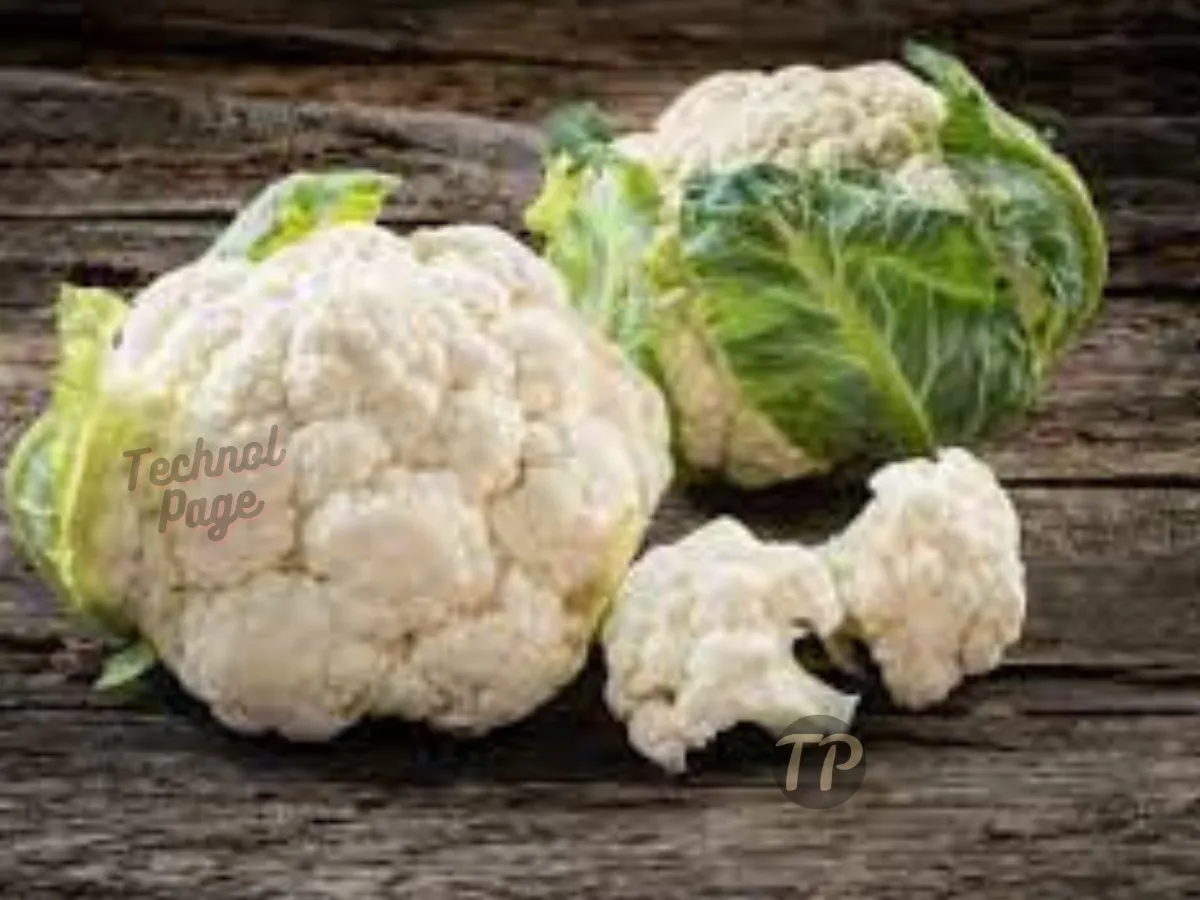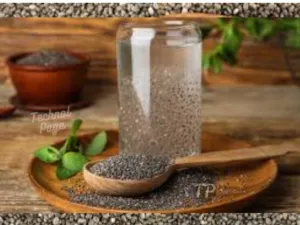Table of Contents
Cauliflower Benefits, Uses and Side Effects

Introduction
Eating cauliflower is excellent for your health. since cauliflower is a veritable gold mine of nutrients. Eating cauliflower contributes to weight loss. In addition, eating cauliflower helps with a lot of health-related issues. Because cauliflower has nutrients that can help shield you against a variety of illnesses, such as vitamin C, vitamin K, fibre, folate, vitamin B, potassium, protein, phosphorus, and manganese. It is a white vegetable that is a member of the Brassica genus. Brassica oleracea var. botrytis is the botanical name for it. Tell us, then, what applications and advantages cauliflower has in this Technol Page article.
Cauliflower Benefits

1). Cauliflower for Bones
Cauliflower has vitamin K, which helps build stronger bones. It also contains a large number of these bioactive chemicals, which increase bone density and lower the risk of fractures. According to medical study, taking vitamin K on a daily basis can lower the risk of fractures. Consequently, one of cauliflower’s advantages is that it helps to strengthen bones.
2). Cauliflower helps in weight loss
There is a fair amount of fibre in cauliflower. Increasing your intake of veggies high in fibre can aid in weight loss. Cauliflower may enhance insulin, glucose, and body fat accumulation while boosting energy levels. There are few calories in cauliflower. It facilitates weight loss. You can incorporate cauliflower in your diet to help reduce obesity.
3). For Good Heart Health
Vegetables high in cruciferous matter may help avoid cardiovascular illnesses. Cauliflower is a member of the Brassica species, which contains cruciferous vegetables. Among cruciferous vegetables are naturally occurring molecules known as isothiocyanates. This chemical can maintain heart health. Thus, it may be concluded that eating cauliflower has potential heart-healthy benefits. We must thus consume cauliflower during the winter.
4). Helpful in preventing cancer
A healthy dose of fibre found in cauliflower aids in the body’s defence against colon cancer. It has an ingredient called Indole 3 Carbinol, which lowers the body’s oestrogen levels and so lowers the risk of breast cancer. Cauliflower has an ingredient called sulforaphane, which has anticancer properties. As a result, cauliflower may offer defence against numerous malignancies, including prostate and colon cancer.
5). Cauliflower helps in reducing swelling
Cauliflower is a rich source of flavonoid chemicals, which have anti-inflammatory properties for human health. Consuming it in the right quantity can provide relief from swelling.
6). Controls Cholesterol
Because elevated blood cholesterol levels raise the risk of heart disease, cholesterol is a concern for many people. The consumption of cauliflower can also help manage cholesterol levels. Cauliflower has an impact that lowers cholesterol. Therefore, eating food containing cauliflower can decrease cholesterol.
7). Helpful in Arthritis
Cauliflower can benefit people with arthritis since it’s high in vitamin K and omega-3 fatty acids, which can help reduce arthritis pain and swelling. Many people suffer from arthritis.
8). Beneficial for Eyes
Vitamin C is beneficial to the eyes’ blood vessels. Scientific studies have shown that it can lower the chance of cataract development. As we age, vitamin C’s antioxidant properties can help save our eyes from harm.
Safety Measures for Cauliflower
1]. It might be safe to eat cauliflower when pregnant. It should not be ingested in large amounts, though.
2]. Breastfeeding while cauliflower is consumed might not have an impact on breast milk.
3]. Breastfeeding women may safely consume cauliflower.
4]. When eating cauliflower, seniors should use caution. Cauliflower should not be consumed in excess to prevent any harmful consequences.
5]. When offering your kids cauliflower, exercise caution. Make sure kids don’t eat too much cauliflower because it can have some negative impacts.
Cauliflower Nutritional Value

| NUTRITION | VALUE PER 100 GRAMS |
|---|---|
| Energy | 25 calories |
| Carbohydrates | 4 . 97 grams |
| Fat | 0 . 28 grams |
| Protein | 1 . 92 grams |
| Cholesterol | 0 mg |
| Fiber | 2 . 0 grams |
| Folate | 57µg |
| Niacin | 0 . 507 mg |
| Pantothenic acid | 0 . 667 mg |
| Pyridoxine | 0 . 184 mg |
| Riboflavin | 0 . 060 mg |
| Thiamine | 0 . 050 mg |
| Vitamin C | 48 . 2 mg |
| Vitamin-E | 0 . 08 mg |
| Vitamin K | 15 . 5 micrograms |
| Sodium | 30 mg |
| Potassium | 299 mg |
| Calcium | 22 mg |
| Copper | 0 . 039 mg |
| Iron | 0 . 42 mg |
| Magnesium | 15 mg |
| Manganese | 0 . 155 mg |
| Zinc | 0 . 27 mg |
| Lutein-zeaxanthin | 1 microgram |
How to Use Cauliflower
1}. After marinating and grilling cauliflower, it can also be eaten.
2}. Cauliflower parathas are another option; they are a popular dish among all people, particularly during the winter.
3}. You may also add cauliflower pickle by combining it with carrot and turnip.
4}. When taken with food, it enhances the flavour of the food significantly.
5}. You can prepare and eat delicious vegetables from it.
Side Effects of Cauliflower

It is typical to include cauliflower in one’s everyday diet. When consumed through food and recipes, it might be safe. People’s responses to different foods and veggies vary, though. See your healthcare practitioner for guidance if you encounter any severe or minor adverse effects following the consumption of cauliflower. Some Side Effects can be seen due to not consuming cauliflower in the right quantity which are as follows :
1}. It has a high uric acid content. Kidney stone formation could occur if it is ingested in excess.
2}. Carbs found in cauliflower are not easily metabolised. As a result, eating too much cauliflower may result in gas issues.
3}. Cauliflower has an adequate amount of vitamin K, which aids in blood clotting.
Disclaimer :-
The suggestions given in the article are for general information only and should not be taken as professional medical advice. Consult your doctor if you have any questions or concerns.
You have read this blog completely and with great attention ,This is our sentiment. If you have any questions regarding the content of our website, you can contact us.
Please visit us :- To know more about our website, please visit our About Us and Disclaimer page.
THANKS





